2016 Congressional Election Predictions
My predictions for the House and Senate.
Yesterday, I posted my prediction for the Presidential election and, if anything, the 12 hours that have passed since then have made me more confident in at least my prediction of the outcome. Clinton’s lead in the two-way race has increased to a 3.2 point margin and a 3.3 margin in a four-way race. That’s well ahead of where President Obama finished four years ago when he went on to beat Mitt Romney by 5. 7 points, and suggests we’re headed for a sizable Clinton win tonight. Just as important as the Presidency, though, is what happens in Congress, where we’ve seen a battle for control of the Senate in which Republican candidates struggled to run campaigns independent of Trump while at the same time not appearing to members of their own base to abandon the party nominee in the middle of a General Election. In the House of Representatives, meanwhile, Democrats have been hoping to at least gain some seats to cut into the historic majority that Republicans put together by the end of the night. The results in these races are just as important as the outcome of the Presidential race, especially since they could determine the ability of whoever wins the Presidency to get their agenda through Congress, to get their cabinet organized, and to nominate Judges, Supreme Court Justices, and Ambassadors and ratify treaties that they believe the United States should enter into. As always, the final outcome is in the hands of the voters, but here’s my forecast of how things will go down ballot based on the polls, a little bit of history, and admittedly some guess work.
U.S. House of Representatives
Current Makeup: 247 Republicans, 188 Republicans
Post-Election: 235 Republicans, 200 Democrats
Thanks to the power of incumbency and the fact that there are very few competitive Congressional Districts, there has never been a significant possibility that Democrats would regain control of the House in this election regardless of what happened in the Presidential and Senate elections. That being said, the fact that the Republicans controlled a historically high number of House seats made it somewhat inevitable that they would lose some seats thanks to the ebb and flow of the Presidential election and the individual strengths and weaknesses of candidates. I’m predicting that the GOP will lose a net of twelve seats but that number could easily be higher or lower depending on how these races go at the individual level. At the end of the night, though, the important fact is that the House at least will remain in Republican control, which will have a huge impact on the Presidency of whoever ends up winning at the top of the ticket.
U.S. Senate
Current Makeup: 54 Republicans, 46 Democrats (including two Independents caucusing with Democrats)
Post-Election: 51 Democrats (including two Independents), 49 Republicans
I haven’t spent nearly as much time on the battle for control of the Senate as I did four years ago, or two years ago during the midterm elections. In part, that’s because the battle for control of the Senate has largely taken a back seat to the battle between Hillary Clinton and Donald Trump. Given that there were two outsized, well-known, personalities at the top of the ticket it’s not surprising that the down ballot races have been neglected at the national level, of course, but because of this we’ve missed some pretty important stories. As I note above, the outcome of the battle here will go a long way toward determining how the first two years of the new President’s term (at least) turn out. Since this is often the time when a new President has the best chance of setting their agenda for the rest of their time in office, the implications of these races should not be understated. If Hillary Clinton becomes President, as I believe she will, whether the Senate is controlled by Mitch McConnell and the Republicans or Charles Schumer and the Democrats will have a huge impact on her ability to appoint Judges and Justices and navigate a legislative agenda through a Congress which, as we’ll see below, is likely to remain in Republican hands on the House level at least. The same is true if the unlikely happens and Donald Trump is elected. In both cases, a Senate controlled by the other party would hinder their agenda significantly.
With that in mind, my final Senate forecast finds that a makeup that would be very helpful to a hypothetical President Clinton:
As noted above, Republicans and Democrats started out this election with the Republicans having an eight-seat majority thanks to their overwhelmingly strong performance in the 2014 Midterm Elections. While this was a significant win, it was apparent after the balloons fell two years ago that Republicans were going to face a serious challenge to their majority in two years. Thanks largely to a series of Senate wins in traditionally Democratic states in 2010, Republicans entered this campaign with a tough job ahead of them. In order to maintain control of the Senate this year, the GOP would need to win down-ballot elections in states that have gone Democratic since 1988 or 1992, or which President Obama managed to win or compete in quite effectively in 2008 and 2012. This included seats in Wisconsin, Illinois, Pennsylvania, Ohio, Florida, North Carolina, Missouri, Indiana, and New Hampshire. By the time we reached this year’s Republican convention, it seemed apparent that the task of defending that majority with Donald Trump at the top of the ticket would become all the more troublesome. If Democrats won in five of those seven states, or only four if they managed to win the Presidency since a tied Senate would mean a tie-breaking vote broken by a Democratic President. As you can see, I’m forecasting that this is exactly what will happen. Here’s some detail on why I’m calling these races the way I am.
Listing the outcome in order of likelihood, here are my predictions:
(The color of a state name indicates the party currently holding the seat, the result indicates which party I believe will win it tonight)
Wisconsin: Democratic pickup
From an early point, this was a state that seemed as though it would be one of the easiest pickups for Democrats if they had the right candidate. Wisconsin has not gone for a Republican in a Presidential election since Ronald Reagan’s landslide in 1984, and it was unlikely that it would do so this year notwithstanding the success of Governor Scott Walker and the Republicans in state elections over the past six years. The likelihood that Senator Ron Johnson, who is defending a seat he won in the solidly Republican year of 2010, would hold on to his seat was fairly low and became even more of a long shot when former Senator Russ Feingold, who Johnson had defeated that year, announced he was entering the race to win his seat back. Feingold had remained quite popular in the state even after losing so it’s no surprise that he leaped to an early lead in the polls, a lead he has held on to ever since. There has been some tightening in the polls here but at the end of the day, the combination of Feingold’s popularity and Clinton’s coattails will give the Democrats a pickup here.
Illinois: Democratic pickup
Like Wisconsin, Illinois has not gone for a Republican in a Presidential election since 1984 so it has been clear for some time that Mark Kirk, first elected in 2010 to fill the seat that had been held by President Obama himself prior to his win in 2008, would be among the most vulnerable Republican seats in 2016. Kirk has earned some bipartisan respect both because he has generally been among the moderate Republicans in the Senate during his time in office and because of his determination to recover from a stroke that he suffered early during his time in office. That respect, though, was never likely to be enough to save him in a Presidential election year against a Democrat in a state once represented by the sitting Democratic President. On the Democratic side, Kirk is facing Congresswoman Tammy Duckworth, an Iraq War veteran who lost her legs flying helicopters. Like Russ Feingold in Wisconsin, Duckworth has basically led in every poll taken in the state and, notwithstanding some of the same tightening in the polls we see in Wisconsin, she will win easily in Democratic Illinois, giving the Democrats a pickup here as well.
Florida: Republican Hold
Florida was among the Republican Senate seats seen as most vulnerable largely because of the fact that it was, until this summer, an open seat not being defended by an incumbent. When Senator Marco Rubio decided to run for President, he said that he would not follow the lead of colleagues such as Kentucky Senator Rand Paul and run for President and re-election at the same time. This led to a scramble on the Republican side to find a candidate who could take on what was expected to be a strong Democratic effort to pickup a seat that would have otherwise likely been beyond reach for them. When Rubio’s Presidential effort fell short, he initially said that he would not reconsider his decision to run for re-election, however as time went on and the seat seemed to be more and more at risk, Rubio decided to enter the race just a few days short of the deadline while most of the Republicans running for the seat dropped out. Quite quickly Rubio rose to the top of the polls and he has largely stayed there ever since notwithstanding the fact that the Presidential race has remained extraordinarily close. Rubio has maintained that lead notwithstanding the fact that Hillary Clinton has shown increased strength in the state and seems likely to win the state at the Presidential level. In a move that will save his politicial career and possibly open the door to another Presidential bid in 2020 or beyond, Rubio will win this state for a Republican hold.
Ohio: Republican hold
Like Johnson and Kirk, Ohio Senator Rob Portman was on the list of vulnerable Senators this year largely due to the fact that President Obama had won the Buckeye State twice over the past eight years and the fact that the turnout model there is far different in Presidential election years than in midterm elections. Despite that fact, and thanks to the combination of a well-run campaign, a weak Democratic opponent, a popular Republican Governor who has campaigned hard for him, and the fact that Portman has largely disavowed and ignored Donald Trump throughout this campaign, Portman stands poised for a strong victory. Combine the fact that it is expected that this will be a good state for Trump and it seems clear that Portman will be safe for re-election. Score this a Republican hold.
North Carolina: Republican hold
As with Florida and Ohio, North Carolina was a state that Democrats hoped that they would be able to flip in the Senate due to a strong performance from their Presidential candidate. The odds have always been fairly low that they could pull that off, and Senator Richard Burr has generally kept a strong lead in the polls throughout the period during which the state has switched sides at the Presidential level. While I believe Hillary Clinton will win here, it’s likely to be a close election and I don’t believe her coattails will be strong enough to overcome Burr’s strengths. Count this as a Republican hold.
Missouri: Republican hold
Senator Roy Blunt was another Republican that Democrats had targetted as potentially vulnerable, but he has kept a strong lead in the polls and, combined with the fact that Donald Trump will have an easy win here makes it unlikely that Democrats will be able to pick up a seat in the Show Me State. Count this as another Republican hold.
Indiana: Democratic pickup
Indiana is not a state that many people expected would be a pick-up this year, but thanks to a series of events it has ended up in a situation where it is playing a crucial role in the future control of Congress. It started when Senator Dan Coats announced, to the surprise of many, that he was not running for re-election. Had the Republican stood for re-election, it’s likely that he would have been easily re-elected regardless of who the Democrats put up against him, but once the seat became open it set in motion a series of events that put the state in play. The most important of these was the decision of former Senator Evan Bayh, who had largely dropped out of politics, to announce his intention to seek to get his old seat back. Initially, Bayh jumped out to an early lead over Republican nominee Congressman Todd Young almost immediately and, while the polls have fluctuated significantly since then and this is a state where Donald Trump is likely to win, Bayh’s record and name recognition strike me as being sufficient to make this another Democratic pickup.
Pennsylvania: Democratic pickup
This is a race that could potentially go either way, thus utterly nullifying my prediction. Pennsylvania has not gone for a Republican for President since the 1988 Election, thus placing Senator Pat Toomey in the same category as colleagues in Illinois and Wisconsin. At the same time, Toomey has shown some of the same resilience as Ohio’s Rob Portman in that he has quite often led in the polls or at least kept the race close enough to make the race as toss-up even as it seems quite apparent that Hillary Clinton will win at the Presidential level. That being said, the fact that Clinton is likely to win here puts Toomey at a disadvantage and, in the end, I think that Clinton’s coattails will be enough to put Kathleen McGinty over the top for a Democratic pickup.
New Hampshire: Democratic pickup
As with Pennsylvania, this is a state that could go either way, but it’s also a state that has been a Democratic stronghold in recent Presidential elections. Senator Kelly Ayotte has traded the lead in the polls with Governor Maggie Hassan several times throughout the years, and the same has been true about Hillary Clinton and Donald Trump. If the result at the Presidential level is close, which it very well could be, then that may be enough for Ayotte to pull out a victory but my expectation is that the combination of Clinton’s coattails and the popularity of Governor Hassan will lead to a Democratic pickup here, giving Democrats a total of five pickups and control of the Senate.
Nevada: Democratic Hold
Of all the states up in 2016, Nevada has been the one Democratic state that Republicans believed they might have a chance at picking up thanks in no small part to Senate Minority Leader Harry Reid’s decision to retire at the end of the year. Unlike previous years, the Nevada GOP managed to pick a good candidate in Congressman Joe Heck while it was the Democrats who ended up struggling to find a candidate that could hold on to Reid’s seat. It’s been an uphill battle for the GOP, though, and although the polls have been close, the early voting numbers from the Silver State have been very favorable to the Democrats and, with Hillary Clinton poised to win the state I believe this will be enough to give a victory to Democratic nominee Catherine Cortez Masto a victory and the Democrats a hold that will allow them to organize a majority without having to rely on the Vice-President’s tie-breaking vote.
We’ll see tonight how right or wrong I am.
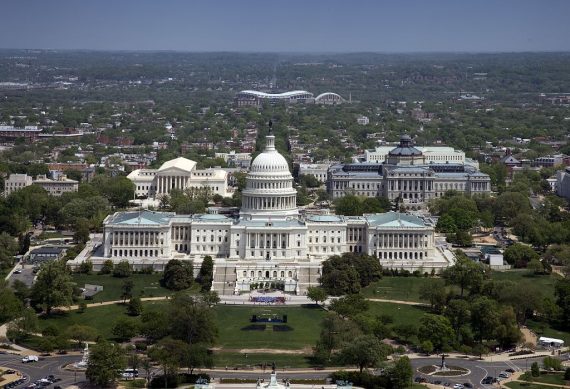
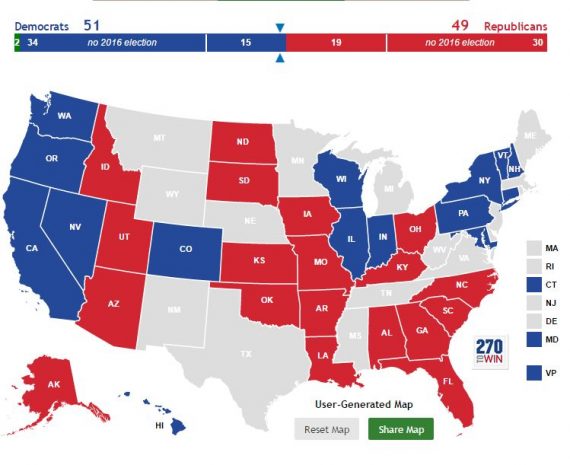

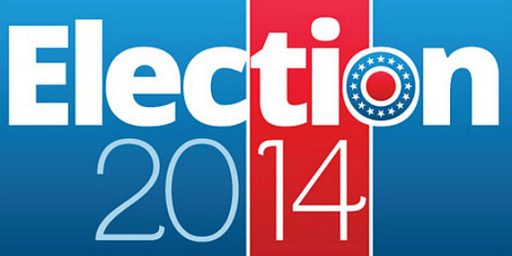
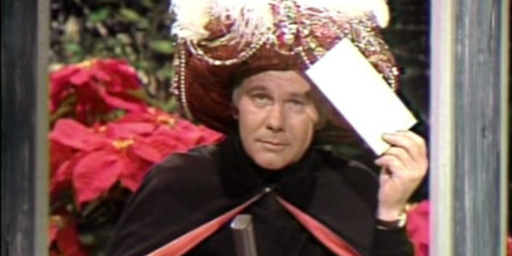
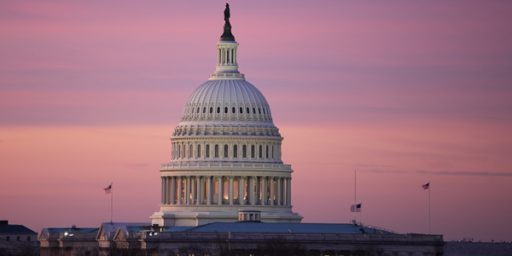


I prefer split Government…but for the good of the country I hope the Senate comes under Democratic Control.
50/50 with Tim Kaine providing the tie-break.
It’ll be nice to get Feingold back.
I’d love for Hassan to beat Ayotte…that craven clump of crap…calling Trump a role model.
I’ll take this forecast but I sure as heck hope Clinton’s win in Florida pulls Murphy over the line and deep sixes Rubio’s political career. His craven submission to Trump would make that a richly deserved loss.
Todd Young is going to beat Evan Bayh in Indiana.
I also think Ayotte holds on in NH. The only recent poll that gives Hassan any kind of lead is the WMUR/UNH poll that had her up 4%. That poll also has Clinton up by 11%.
I’ve seen surprisingly little coverage of Tim Kaine since his nomination. I suspect it’s because Trump sucked all the oxygen out of the room. But there’s a good chance of 50/50 in the Senate, in which case Kaine becomes the most important man in the country.
@Gavrilo:
Based on all the other nonsense you think…Hassan is a shoe-in.
OT, but.
There’s now a garbage truck wall surrounding Trump Tower.
While it has been put together by the NYPD, it’s still unclear if the Mexicans paid for it.
What has been confirmed though, is that when Trump loses it will all be set on fire, for the most glorious dumpster fire ever.
Where’s the commentariot’s Indiana political expert? I think Missouri is more likely to vote for a Democratic Senator now than Indiana. Both states are voting for Trump for President, but only in Missouri is the Democrat running as a populist and agent of change against an establishment figure. Bayh is running as a DLC-style centrist establishment figure refreshed from some time-off working for private equity and lobbying. I don’t think that is intentional; I don’t know if he’s got bad press or he’s simply decided to run on name – recognition and answer questions on immigration reform with a promise to study the issue. But there is far more incongruity btw/ voting for Trump and Bayh, as opposed to Trump and Kander.